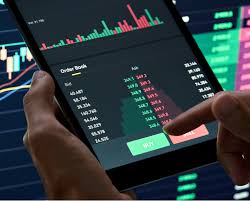
Understanding Crypto Trading Execution Speed
The world of cryptocurrency trading is fast-paced and dynamic, with traders constantly seeking an edge in a market characterized by volatility and rapid price changes. One of the most critical factors that can influence a trader’s success is crypto trading execution speed. In this article, we will explore the significance of execution speed, how it impacts trading strategies, and what traders can do to improve their execution performance. For more insights into trading techniques, Crypto Trading Execution Speed click here.
The Importance of Execution Speed in Crypto Trading
Execution speed refers to the time it takes to complete a trade after the decision to trade has been made. In the cryptocurrency markets, where prices can fluctuate significantly in a matter of seconds, a delay in execution can lead to missed opportunities or financial losses. When a trader places an order, whether it’s a market order or a limit order, the speed at which that order is executed can greatly affect the outcome of the trade.
1. Volatility and Market Dynamics
Cryptocurrencies are notoriously volatile. During periods of increased trading activity, prices can change rapidly. A few seconds’ delay in order execution can mean the difference between a profitable trade and a significant loss. The added element of market dynamics complicates this further, as the behavior of other traders can also impact price movements. As such, traders must be equipped to react quickly to market changes.
2. Types of Orders and Their Execution
There are various types of orders in crypto trading, including market orders, limit orders, and stop-loss orders. Market orders are executed almost instantly at the current market price, but they also expose traders to slippage, especially during volatile market conditions. Limit orders, on the other hand, provide more control over the execution price but may not be executed immediately, particularly if the market moves away from the specified price. Understanding how different orders work and their implications on execution speed is crucial for effective trading.
Factors Influencing Execution Speed
Several factors affect the execution speed of trades in cryptocurrency markets, including:
1. Trading Platform Performance
The performance of the trading platform itself plays a significant role in execution speed. High-performance platforms with advanced infrastructure can process orders more efficiently, reducing latency and improving execution times.
2. Network Congestion
During periods of high trading volume or market activity, networks may become congested, leading to longer execution times. This is especially true for platforms operating on blockchains with slower transaction confirmation times.
3. Internet Connection
A trader’s internet connection is also a critical factor. A fast and stable internet connection is essential for ensuring quick communication with trading servers. Connectivity issues can lead to delays, missed trades, or even erroneous trades.
4. Geographic Location
Latency can also be affected by geographic location. Traders on different continents may experience varying execution speeds due to the physical distance from trading servers. The closer a trader is to a server, the lower the latency and the higher the execution speed.

Strategies to Enhance Execution Speed
To capitalize on the advantages of execution speed, traders can employ several strategies:
1. Choose the Right Trading Platform
Select a trading platform known for its robust performance and reliability. Look for platforms that offer low latency and have a strong reputation in the cryptocurrency community.
2. Optimize Internet Connectivity
Investing in a stable and high-speed internet connection can significantly impact execution speed. Additionally, using a wired connection instead of Wi-Fi can reduce latency and improve reliability.
3. Use Algorithmic Trading
Algorithmic trading involves using automated systems that can execute trades based on predefined criteria faster than human traders. This can be especially useful in volatile markets, allowing traders to respond to market changes almost instantaneously.
4. Stay Informed About Market Conditions
Keeping up with news and market developments enables traders to anticipate market moves and make quicker trading decisions, thus enhancing overall execution speed.
The Future of Crypto Trading Execution
As technology continues to evolve, so too will execution speed in crypto trading. Innovations such as blockchain scaling solutions, enhanced trading algorithms, and improved network infrastructures are likely to further minimize latency and optimize trading performance.
1. Advances in Blockchain Technology
With ongoing advancements in blockchain technology, we can expect faster transaction processing times, thereby improving overall execution speed in crypto markets. Projects focusing on scalability aim to reduce congestion and enhance throughput, making trading smoother for users.
2. Enhanced Artificial Intelligence Integration
AI-driven trading systems are becoming more sophisticated, enabling traders to make faster, more informed decisions. As AI algorithms continue to be refined, they are expected to improve execution times significantly by analyzing vast amounts of market data in real-time.
Conclusion
In conclusion, crypto trading execution speed is a vital aspect that can substantially affect a trader’s success in the fast-paced world of cryptocurrencies. By understanding the importance of execution speed, recognizing the factors that influence it, and implementing strategies for improvement, traders can better position themselves to seize opportunities and manage risks effectively. As the landscape of cryptocurrency trading evolves, staying ahead of execution speed will remain crucial for both novice and experienced traders alike.


